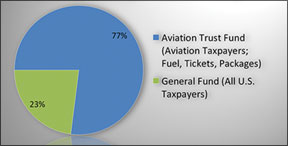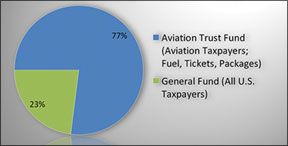In early February, the FAA released its proposed budget for fiscal year 2008, which begins October 1, 2007. To no ones great surprise, it calls for creating a new system of user fees in place of the existing excise tax levies to fund the agency and its programs for enhancing ATC and expanding airports. The new proposal comes after months of statements from the FAA and its parent Department of Transportation calling for fundamental changes in how the agency is 288 funded. Much of it results from years of lobbying by the airline industry. Predictably, the proposal unleashed a tornado of protests from general aviation groups, which will only grow larger and louder. Aircraft Owners and Pilots Association President Phil Boyer summed up the situation: “While we wont know the specifics until the actual FAA reauthorization proposal is released later this month, we have strong reason to believe it would increase GA fuel taxes by nearly fourfold. As if a huge tax increase isnt bad enough, the budget makes it clear that the FAA would charge user fees for GA operations in the nations most congested airspace, which sounds like Class B airspace. “And dont think you could get out of paying fees by avoiding Class B airspace. The FAA is also looking at dramatically increasing fees for aircraft registration and replacement pilot certificates. The FAA wants to collect user fees on many new services such as processing pilot and medical certificates.” The budget and user fee proposal comes as projections for the FAAs current financing mechanisms show “record aviation trust fund revenues generated by a sound system of aviation excise taxes,” according to the General Aviation Manufacturers Association (GAMA). In fact, shortly after the proposal was made public, Senator Sam Brownback (R-Kan.) pointed out to Secretary of Transportation Mary Peters that the FAAs funding scheme would raise 
What does all this have to do with safety? Just this: If the government artificially raises the cost of fuel, charges for using certain airspace and for ATC services, the increased costs will have a chilling effect on flying activity and proficiency. How many of us will find the additional financial resources to get regular training, once we factor in the increased costs? If, for example, theres a fee to file an IFR flight plan, but the weather is “only” marginal VFR, will we try to go VFR or pay the piper? Im sure you can think of other examples.
Congress will decide these and related questions between now and this fall. You know what to do. -Jeb Burnside




